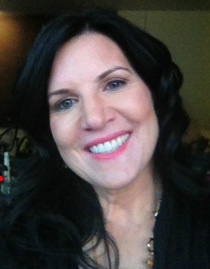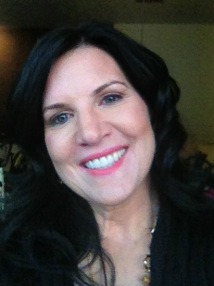
All life experiences are transient. We cannot put any experience in a bottle to experience again later. Once we accept this fact, we can really appreciate the importance of enjoying life in the moment.
Life poses some interesting opportunities for us to learn. One moment we feel we have found something so beautiful and perfect, that we think nothing else could be so wonderful. This could be a close friendship, being with a parent, a child, a romantic relationship, a pet we enjoy, or even being in a particular place. Sometimes life moves fast, or changes so that we no longer have that special relationship or cannot be in that special place. Often we suffer from the pain of "losing" that person, either in life due to changed circumstances or with their passing, or we may feel detached from places that have helped us feel so wonderful. Realizing that life is a series of transient experiences, some on one side of the spectrum that are profoundly wonderful and others on the other side that seem dark and hopeless can help us rationally seek balance. The expression that we may hear when dealing with a loss, "This too, shall pass...", touches on this idea. When we are feeling the pain of loss so acutely, it seems that nothing (even wise sayings) can console us. The pain we feel over losing someone or something so precious to us can be a terribly wrenching experience that can effect us to the core, cause us to lose sleep, suffer profoundly for a long period of time, depending on how dear or close this person was, or how significant the loss was. There's nothing to do but to feel it. Feel the pain in our bodies as the waves move through us, without judging or thinking what "could have been" "might have happened differently" or "I'll never go there again." Until we feel the pain of the loss we cannot begin to accept it.
Accepting the idea of the transience of experience, allows us to really understand rationally that whenever there is love, at some point there will be loss. In the case of a relationship, it can come through people divorcing or separating, or through death of one party. Just because this person leaves our lives, it does not mean that the love was not real, or the experiences were not beautiful, it simply means that the time of being together has passed - so move on to the next experience. The longer we stay dwelling over that one, the longer we will not be living our lives, open to new experiences.
How can we learn to truly appreciate and accept as life experience the transience of finding perceived perfection and beauty in something outside of ourselves, and accept the inevitable grief of the loss of it? Realizing that the beauty and wonder we experience in life is not diminished by loss - the realization that the beautiful experience will always will be a part of us comes through acceptance. The agony we may feel when we experience a perceived "loss" of something dear or important to us, or have failed from our mind perspective, can be diminished if we are able to take the time to feel the emotions of the perceived loss. Much of the pain and suffering we may experience is because we are avoiding feeling the emotions of the loss in our bodies - our mind is spinning about it, and it creates pain in our bodies, that needs to be felt. This experience is also a part of us. If we practice feeling our emotions in our bodies on smaller "disappointments" when bigger ones come into our experience, we will be much more prepared. Our acceptance that the situation did not work out as we hoped, will allow us to recognize the beauty in our experience as well as the acceptance in the perceived "loss" of it. We cannot put our child's first steps into a bottle, but we can look back and think of it - a thought that opens our hearts to love.
The answer is to remind ourselves that we must accept life, and life experiences for what they are - not resist them, and not look for true love and happiness outside of ourselves. True love and happiness is found within each of us.
How do we do this?
- If something changes in such a way as to not work out, or we lose some one close to us, or do not get the promotion we were hoping for, or lose our job and have no money to pay our bills, there is grief to be sure, but it is really our thoughts about the loss that causes our emotional turmoil.
- If we lose someone close to us through death, or through a divorce or break-up we were not wanting, we are reminded of the loss each time we see something that reminds us of them, whether it's the things they collected, personal effects still in your home, or even something they picked out, or purchased.
Also, when we go to do an activity without them, eating out - going to a movie, or visiting with friends, we are reminded of the loss, and the thoughts about how we wish they were there fill our minds and spin. - If we did not get a promotion, or get demoted, we have to go back to work, we are reminded of this fact, each time we face our co-workers who all know we did not get the promotion or got demoted. When we begin to do our work, we might also start spinning in our minds about not getting the promotion, causing us to feel less motivated.
- If we lose our job, and/or do not have enough money to pay our bills, when we see neighbors and friends, we are reminded of our loss, and each call from bill collectors, reminds us of us losing our job, or just not having enough money to pay our bills.
Nothing here diminishes the strong beautiful and/or hopeful emotions you once had, and maybe can have again! Many people think once something is lost it is gone - but that is just not true. Often part of our growth and development depends on us having joint experiences to learn from. Don't let blame, or envy or regret to cloud your next steps. Losing a loved one through passing, is often about forgiving yourself and/or them. Financial difficulties and loss, is often about forgiving yourself, accepting responsibility without blaming yourself or others, and letting go of regret - so you can see the situation more clearly.
FOOD FOR THOUGHT: Imagine for a moment that we are feeling that wonderful feeling of being in a love relationship with a "soulmate," for example. This person feels so dear to us we cannot imagine what life would be like without their love and acceptance. We have built up beliefs about why we love this person so much, feel tremendous peace when we are together, we feel an egoic sort of "awe" about life. Now imagine one person feels their needs are not being met, and the other does not understand why or what to do about that. Justified or not, resentment builds, and what once felt like it was the most amazing thing in the world, causes tremendous pain and suffering as it breaks apart. What is the point of all this? If we could see the inevitable suffering and pain of losing something or someone dear to us ahead of time, would we forgo the experience? Does it make the person less dear to us? I do not think so. Maybe this whole cycle, which seems to be deeply embedded in the human condition, is an opportunity for us to see that we are complete unto ourselves - we need to add nothing to ourselves to feel awe. For example, if the first party could really feel the waves of resentment in his/her body as it came through, he or she could say something at the moment. After all if the feelings have been mutual all along, there should be an assumption of goodwill - not a feeling by one party that the other is out to be inconsiderate. Then the other party thinks, well, if they can't even think of that, then that's not enough for me! I need to be with someone who always thinks of that! So that party may jump into the next relationship thinking that THAT one will be different - that one will be considerate, because I have been sharing with this person how inconsiderate that other person was.....this only starts the cycle all over again. You get the rest. So why put ourselves through all this? feeling the waves of resentment of the loss in the body, when they move through us is an effective way to transmute pain and suffering into a more peaceful state. Each time we do this, it lightens our load. It breaks up the intensity of the pain and suffering, and allows us to feel our very beingness - an "awe" of just being alive and present. What happens when we accept that the cycles we create in our lives - the highs and the lows - are dictated by our beliefs. Changing our beliefs requires us to practice and learn how to live consciously, to make immediate connections between our thoughts and the feelings such thoughts cause to our bodies. We can ask ourselves certain questions, like:
1. Why does being with that person/situation make me feel so wonderful?
2. Why does that/do those things appeal to me?
3. Is there volatility in the relationship/situation? If so, how does that make me feel? and excitement?
4. How am I contributing to the volatility? The excitement?
5. How am I contributing to the situation? What is my role?
6. How does it feel when I am not with this person or in this situation?
7. How would it feel to imagine living with this feeling on a daily basis?
8. Is there substance abuse or infidelity involved/Anger? How does that feel?
9. Am I resentful or angry?
As we ask these questions, we must consider that we cannot change this person or situation, we can only change our response to it/them.
That being said,
in our bodies, to know our beingness. can allow us to feel a profound love for another but created by our belief about what is beautiful and perfect, we can begin to accept the transient nature of it, and learn to look within ourselves for that beauty and perfection. I am beautiful and I am perfect. So are you. I do not need anything or any one to make me feel that way. By feeling our very beingness, our aliveness, we ignite an awe that surpasses anything else. The wonder of just being alive!

 RSS Feed
RSS Feed